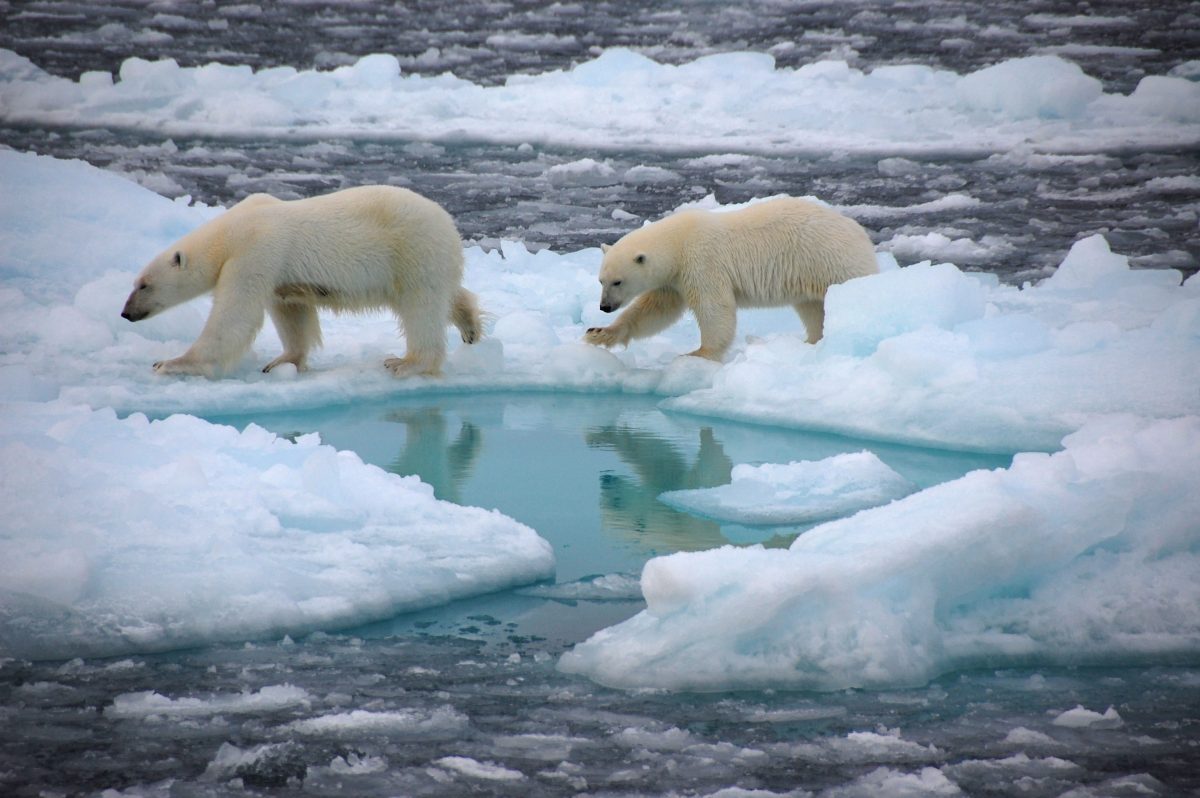
North pole soon to be ice free in summer
The Arctic Ocean will very likely be ice free in the summer before 2050, study
The Arctic Ocean will very likely be ice free in the summer before 2050. These are the results of a new study involving 21 research institutes from around the world, including the University of Manitoba.
One of the team’s expert climate modelers is Dr. Julienne Stroeve, University of Manitoba Senior Canada-150 Research Chair in Climate Forcing of Sea Ice at the Centre for Earth Observation Science (CEOS).
“The latest results from CMIP6 support that sea ice will continue to decline as atmospheric CO2 concentrations increase, with many of the models in agreement with observations that it is likely ice-free summer conditions will be reached within three decades,” Dr. Stroeve says.
The research team has analyzed recent results from 40 different climate models. Using these models, the researchers considered the future evolution of Arctic sea-ice cover in a scenario with high future CO2 emissions and little climate protection. As expected, Arctic sea ice disappeared quickly in summer in these simulations. However, the new study finds that Arctic summer sea ice also disappears occasionally if CO2 emissions are rapidly reduced.
“If we reduce global emissions rapidly and substantially, and thus keep global warming below 2 °C relative to preindustrial levels, Arctic sea ice will nevertheless likely disappear occasionally in summer even before 2050. This really surprised us” said Dirk Notz, who leads the sea-ice research group at University of Hamburg, Germany.
Currently, the North Pole is covered by sea ice year round. Each summer, the area of the sea ice cover decreases, in winter it grows again. In response to ongoing global warming, the overall area of the Arctic Ocean that is covered by sea ice has rapidly been reduced over the past few decades. This substantially affects the Arctic ecosystem and climate: The sea-ice cover is a hunting ground and habitat for polar bears and seals, and keeps the Arctic cool by reflecting sunlight.
How often the Arctic will lose its sea-ice cover in the future critically depends on future CO2 emissions, the study shows. If emissions are reduced rapidly, ice-free years only occur occasionally. With higher emissions, the Arctic Ocean will become ice free in most years. Hence, humans still have an impact on how often the Arctic loses its year-round sea-ice cover.
Technical details: The simulations used in this study are based on so-called SSP Scenarios (shared socio-economic pathways), which will also be used for the next IPCC report. Scenarios SSP1-1.9 and SSP1-2.6 are used to simulate a rapid reduction of future CO2 emissions, while scenario SSP5-8.5 is used to simulate largely unchanged future CO2 emissions. The study is based on simulations from the most recent generation of climate models, collected within the Coupled Model Intercomparison Project Phase 6 (CMIP6).
Media Contact:
Sam Swanson
Communications and Outreach
Centre for Earth Observation Science
University of Manitoba
Phone: +1 (204) 590-8591
E-Mail: samuel.swanson@umanitoba.ca







Maybe its time to establish a population of polar bears in Antarctica.
Thought that happened already. Predicted multiple times in the past.